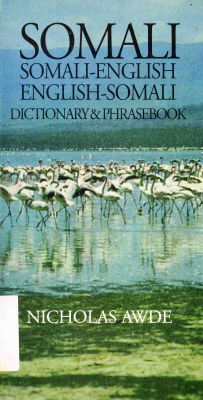What does the term Wasmo Somali truly signify within the Somali cultural framework? This question has sparked debates and discussions among linguists, cultural analysts, and enthusiasts of Somali heritage. The phrase “Wasmo Somali,” often interpreted in English as a reference to sexual activity, carries deeper connotations that extend beyond its literal meaning. Within the intricate tapestry of Somali culture, Wasmo represents a nuanced expression of identity, tradition, and societal values. Its interpretation varies depending on context, making it an intriguing subject for exploration.
The emergence of Wasmo-related content on platforms like TikTok and Telegram further amplifies its significance. In 2023, viral videos featuring Wasmo themes gained immense popularity, drawing attention from both local and international audiences. These digital expressions reflect contemporary interpretations of traditional concepts, blending modernity with cultural roots. As Somali communities engage in conversations around Wasmo's meanings, they also address broader issues such as language preservation, cultural representation, and generational shifts. Understanding the complexities behind Wasmo Somali requires delving into linguistic nuances, historical contexts, and evolving social dynamics.
| Personal Information | Details |
|---|---|
| Name | Not applicable (Topic-based) |
| Cultural Origin | Somali |
| Language | Af Soomaali / Somali |
| Primary Context | Cultural expression, linguistic phenomenon |
| Relevance Today | Discussed widely in media, particularly online platforms |
| Reference Website | MN Dept. of Health |
Within the realm of public health, Wasmo Somali takes on another dimension when linked to educational initiatives. For instance, the Minnesota Department of Health offers resources translated into Somali, including fact sheets about La Crosse Encephalitis. Such efforts underscore the importance of culturally relevant communication strategies in promoting awareness and understanding. By presenting information in Af Soomaali alongside English translations, authorities ensure accessibility for diverse populations. This approach not only facilitates comprehension but also honors linguistic diversity.
Moreover, the concept of Wasmo Somali intersects with discussions surrounding gender roles, youth engagement, and technological advancements. Younger generations utilize digital tools to reinterpret traditional narratives, creating innovative forms of self-expression. Through music, dance, poetry, and video production, they challenge stereotypes while celebrating their heritage. This fusion of old and new elements enriches Somali culture, fostering inclusivity and adaptability. However, it also raises questions regarding authenticity and appropriation, prompting critical reflections on how cultural symbols are utilized in globalized settings.
In addition to its cultural implications, Wasmo Somali serves as a catalyst for academic research. Scholars examine its etymology, usage patterns, and sociopolitical dimensions to gain insights into Somali society. Their findings contribute to broader discourses on identity formation, migration experiences, and intercultural dialogue. Furthermore, these studies inform policy-making processes aimed at addressing challenges faced by marginalized groups. By prioritizing grassroots perspectives, policymakers can develop more effective solutions tailored to specific community needs.
Another noteworthy aspect of Wasmo Somali lies in its potential to bridge gaps between different demographic segments. Whether discussing health matters, entertainment trends, or educational opportunities, incorporating Wasmo terminology fosters connection and solidarity. It encourages open communication across age groups, genders, and socioeconomic backgrounds. At the same time, it highlights the resilience and creativity inherent in Somali traditions, proving that ancient customs can thrive amidst rapid change.
As we continue exploring Wasmo Somali, it becomes evident that this seemingly simple phrase encapsulates multifaceted layers of meaning. From its origins rooted in Somali folklore to its current manifestations in cyberspace, Wasmo embodies the dynamic nature of cultural evolution. While debates persist regarding its exact definition, one thing remains clear: Wasmo Somali plays a pivotal role in shaping modern Somali identity. Embracing its complexity allows us to appreciate the richness of this cultural treasure and recognize its enduring relevance in today's world.
Efforts to translate materials related to Wasmo Somali into English underscore the necessity of accurate and respectful interpretation. Organizations such as the Minnesota Department of Health strive to provide reliable resources for all stakeholders involved. Their commitment to producing high-quality translations ensures that vital information reaches intended audiences without compromising integrity. Additionally, they collaborate with community leaders and experts to validate content accuracy, thereby enhancing credibility and trustworthiness.
In conclusion, the exploration of Wasmo Somali reveals much about the complexities of cultural transmission and adaptation. As technology continues advancing and globalization intensifies, preserving indigenous languages and practices becomes increasingly important. By valuing contributions from various sectors—including education, healthcare, arts, and sciences—we strengthen our collective ability to honor and sustain unique cultural identities. Ultimately, understanding Wasmo Somali contributes to building bridges rather than barriers, promoting harmony and mutual respect among diverse peoples worldwide.




